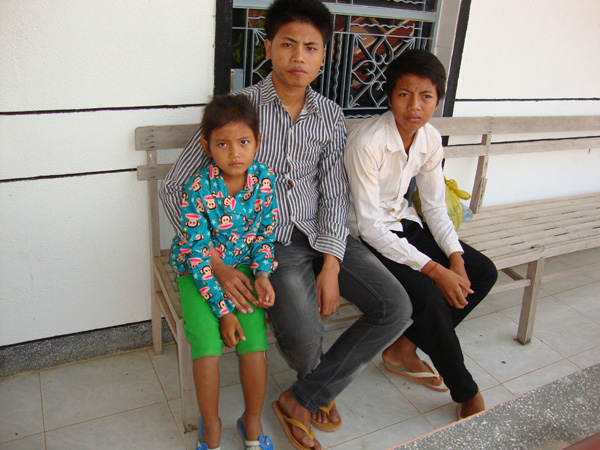
 Heng Lay Him, 20, comes from a humble farming family in Prey Veng Province. On 11 November 2011, he was charged with murder.
Heng Lay Him, 20, comes from a humble farming family in Prey Veng Province. On 11 November 2011, he was charged with murder.
At the age of seventeen, Lay Him left school in grade seven to start work as a truck driver. His father had sold most of the family’s rice fields, squandering away the profits for alcohol. So it was up to Lay Him to provide support for food and education for both his 8 year old sister and 16 year old brother.
Shortly after midnight on 10 November 2011, Lay Him called his uncle to tell him that he had stabbed and killed his father. Fifteen minutes later he was arrested by the police and the following day he was charged with murder by the Investigating Judge.
As is usual in felony cases, Lay Him’s case had to be assigned to a defense lawyer before the case could proceed to trial. On 15 November 2011, the court assigned his case to IBJ’s lawyer, Mr. So Bengtharun. During trial Mr. Bengtharun asked him a question that changed Lay Him’s fate.
Mr. Bengtharun asked Lay Him why he had stabbed his father. Lay Him went on to explain that his father was a violent drunk. He would often fire a gun into the air, or throw homemade bombs into the rice fields. The family lived in fear. At its most costly, his father’s violence caused such extensive damage to his mother’s foot that she was left permanently disabled; unable to walk or work. Three years later she died. While Lay Him gave this information in court he and his family members were brought to tears.
Lay Him explained that on the on the night of the incident, his father had come to him demanding money. Lay Him tried to flee through the backdoor but was trapped by his father. His father turned violent, and Lay Him tried to defend himself by stabbing his father.
Cambodian law prescribes a sentencing period of between ten to fifteen years imprisonment for charges of murder. As a result of Lay Him’s story of family abuse, in March 2012 he was sentenced to four years in prison. IBJ’s lawyer, Mr. Bengtharun, had successfully argued for a reduced sentence, emphasizing his father’s harmful lifestyle, use of domestic violence and the responsibility placed on Lay Him to care for his younger siblings.